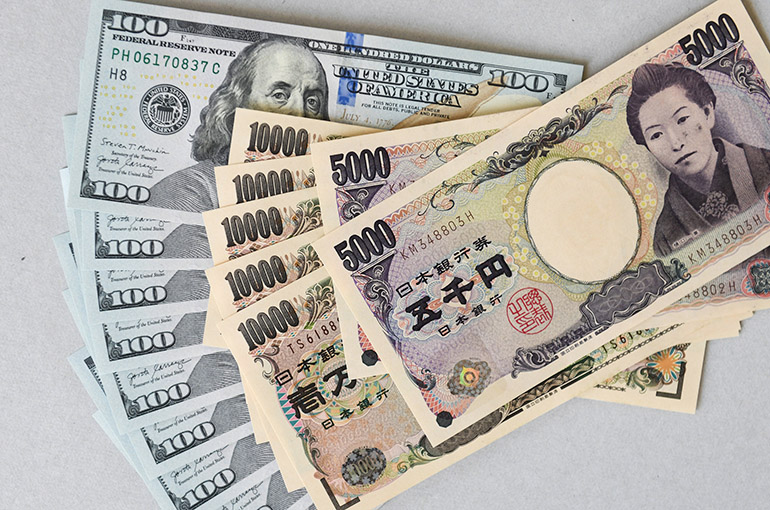 The Impact of Tariffs Prompt Analysts to Eye Japanese Assets, Remain Cautious on US
The Impact of Tariffs Prompt Analysts to Eye Japanese Assets, Remain Cautious on US(Yicai) April 29 -- Analysts are turning optimistic on Japanese stocks and the yen while remaining cautious about equities listed in the United States, as the impact of tariffs intensified growing investor uncertainty.
The China Southern Summit TOPIX ETF (QDII), which tracks the Tokyo Stock Price Index—a broad gauge of Japanese stocks listed on the Tokyo Stock Exchange’s Prime Market—traded at a discount yesterday. Meanwhile, several exchange-traded funds tied to both the US and Japanese markets saw their premiums fall below 1 percent. Just last year, premiums on these funds had soared as high as 20 percent, typically hovering around 5 percent.
A decline in ETF premiums, or a shift to a discount, usually reflects weakening investor sentiment, as the ETF’s market price approaches or drops below its net asset value.
Mixed Outlook on US Equities
Analysts hold varying views on US stock returns following the Trump administration’s decision to pause the rollout of “reciprocal tariffs” for many countries—excluding China—amid softening rhetoric from the president and Treasury Secretary Scott Bessent.
Despite this easing tone, uncertainty continues to cloud US equities. Michael Wilson, chief investment officer at Morgan Stanley, said that the exemptions and pause in tariffs suggest the administration is willing to show flexibility. Still, he warned that headwinds remain: earnings expectations continue to be revised downward, and the Federal Reserve is maintaining a cautious, wait-and-see stance.
Morgan Stanley believes that for the S&P 500 to remain above 5,500 points, several conditions would need to align: a shift to a more dovish Fed policy, a broad trade agreement with China, a decline in long-term interest rates to around 4 percent or lower, and stronger corporate earnings with no signs of recession or inflection points.
In a rare trend, investors are retreating from US assets altogether—simultaneously selling US stocks, dollars, and bonds. Goldman Sachs warns that international selloffs could persist if the tariff issues are not resolved, potentially exerting substantial pressure on US equities.
Nevertheless, Goldman Sachs also sees early signs of improvement. Companies representing about 30 percent of the S&P 500's market capitalization have reported earnings so far, with 46 percent exceeding expectations and only 10 percent significantly missing. Despite a challenging macro environment, earnings projections have remained stable with no substantial downward revisions.
Strengthening Confidence in Japanese Assets
Major institutions are growing increasingly optimistic about Japanese equities and the yen, bolstered by improving inflation and wage growth data.
Liu Peiqian, Asia economist at Fidelity International, told Yicai that rising salaries in Japan are boosting household real incomes, making consumers more accepting of price increases. This signals a shift toward moderate inflation growth and supports the Bank of Japan’s move toward policy normalization.
In January, the Bank of Japan raised its benchmark short-term interest rate to 0.5 percent—the first hike in 17 years—marking a break from its ultra-low interest rate policy.
As global trade uncertainty rises, many countries are reorganizing supply chains through “friendshoring,” reducing reliance on politically unstable or less trusted nations. Liu noted that Japan stands to benefit from this trend. However, given the continued ambiguity of US trade policies, the BOJ is expected to proceed cautiously, favoring gradual rate increases.
While a stronger yen could dampen equity market performance, most institutions believe that a gradual appreciation will have only a limited impact—as long as it doesn’t spike suddenly.
Historically, Japanese investors have favored higher-yielding US-listed equities over domestic stocks. However, Goldman Sachs observed that poor overseas market performance—especially in the US—since the beginning of the year may prompt Japanese investors to shift focus back to the domestic market.
Jiang Xianwei, senior global market strategist at J.P. Morgan Asset Management China, told Yicai that domestic capital inflows in Japan have been rising in recent years, creating a more balanced funding base. Meanwhile, global investors are increasingly diversifying away from US assets, and Japan’s equity market is gaining attention due to its comparatively low valuations.
Editor: Emmi Laine